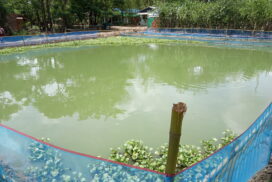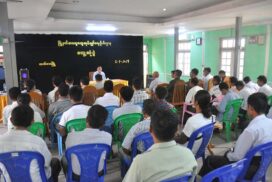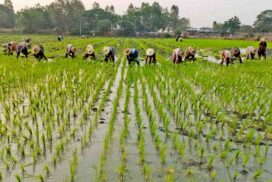The global necessity for food security remains an undeniable imperative, and within the framework of its agro-centric economy, Myanmar stands poised to satisfy the worldwide demand for sustenance. The prospect of Myanmar emerging as a substantial food provider on the international stage hinges on its ability to cultivate diverse and high-yield crops. Such an achievement would enable the nation to tap into the extensive consumer base spanning all corners of the globe.
For Myanmar to ascend as a key food supplier, a concerted effort must be directed towards cultivating premium strains of crops, including high-yield paddy, while concurrently exploring the manufacturing of value-added food products. This endeavour necessitates the integration of contemporary technologies in both agricultural and livestock production. This entails bolstering micro-, small-, and medium-sized enterprises to manufacture an array of food items that cater to local demand initially, with an eventual eye towards exporting these products abroad.
Presently, a substantial portion of farmlands — exceeding three million acres—are dedicated to single-crop cultivation. By diversifying post-paddy harvests to encompass additional crops, particularly oil crops, Myanmar has the potential to mitigate its reliance on imported consumer essentials. This diversification could also lead to a surplus of crops, facilitating exports to neighbouring nations and even those within the broader region.
The government’s pivotal role in optimizing agricultural land utilization cannot be overstated. Ensuring that agricultural lands remain dedicated to their intended purpose rather than being repurposed for alternate ventures is essential to sustain agricultural output and safeguard the livelihoods of farmers. Any diversion from this path could yield detrimental outcomes for both the agricultural sector and the nation as a whole.
The augmentation of crop yields hinges on the judicious and correct cultivation of planned crops. This virtuous cycle not only promises food security but also furnishes the bedrock for national development. Consequently, it’s imperative for both local authorities and farmers to discharge their responsibilities earnestly, collaborating to usher the nation into the modern era. Government entities must provide technical expertise and agricultural resources while concurrently supporting the promotion of agricultural output. In parallel, farmers must contribute their efforts within the framework of government policies.
This juncture presents a golden opportunity for all cultivators, whether individual farmers, cooperative groups, or collective entities. Engaging in the cultivation of paddy, oil crops, and industrial crops holds the promise of uplifting socioeconomic standards and ensuring food security. The path to a glittering future is illuminated by the collaborative endeavours of those who till the land.
Seize the moment: Farmers envisage a bright future
- August 13, 2023
- 177














